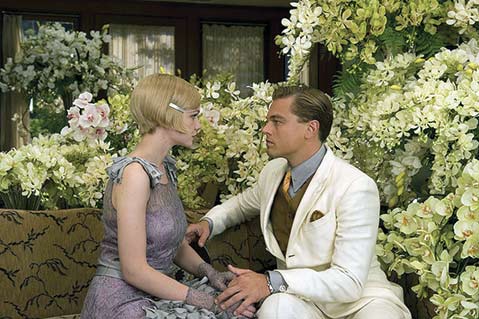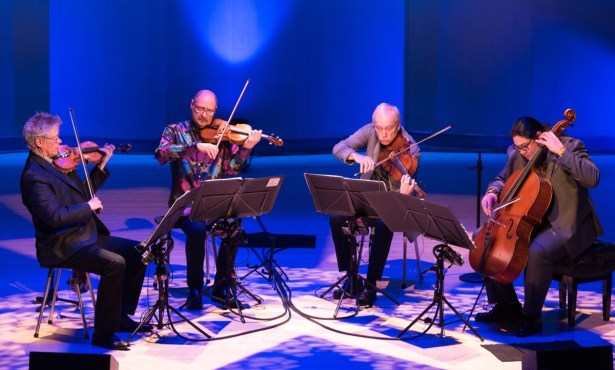The Great Gatsby
Leonardo DiCaprio, Tobey Maguire, Carey Mulligan and Joel Edgerton star in a film written by Baz Luhrmann and Craig Pearce, based on the novel by F. Scott Fitzgerald and directed by Luhrmann.

Take away Titanic, and think all the way back to his role in What’s Eating Gilbert Grape, and it’s surprising to realize how few Regular Joes have made their way into Leonardo DiCaprio’s filmographic cast of characters. Especially in the last career stretch, from Aviator through Inception and Django Unchained — trace elements of which can be detected in his current role as the man Gatsby — DiCaprio has specialized in extreme figures with a certain charisma and mastery over their destiny, and yet marked by a certain scent of imminent downfall. But a fundamental question arises: Really, is this the face and persona we want to grant our vision of Jay Gatsby, the mysterious tycoon and namesake of F. Scott Fitzgerald’s masterpiece?
A larger question hovering over this well-intentioned but faltering adaptation concerns the matter of whether or not we really want to entrust a screen adaptation of this Great American Novel to a novelty peddler and sensation seeker like Baz Luhrmann. This is the man, a popcorny version of the postmodernist will to splice and dice eras, styles, and attitudes within a single artwork, who shook up and dumbed down Shakespeare with his Romeo + Juliet (also with our man DiCaprio) and then created his own relative masterpiece with the shamelessly kitschy cobble job of Moulin Rouge!
Luhrmann gets a lot of things right in his Gatsby, including the potent metaphorical baggage of a story full of bravado amid impending crisis in the tonier strata of New York, and America, generally, during the heady rush of 1920s rise before the fall. Beneath the pomp and swagger, it’s a desperate story of love, sought and obsessed over — between DiCaprio’s self-reinvented Gatsby and the Daisy Buchanan (Carey Mulligan) across the water — and that important emotional subcurrent is successfully translated from book to screen. Tobey Maguire plays the all-important and mostly objective observer in the middle of the story yet off to the side, a storyteller within the storytelling.
Abruptly, though, our sense of space and time is violated, and hip-hop zooms into the soundtrack, and the decadent parties at Gatsby’s lavish estate seem like last week’s news. Things keep going left, without apparent rhyme or reason, and the Luhrmann-esque excesses go too far and not far enough. He could have gone over the top to update and reframe the Gatsby tale, but he stops short, leaving us contextually adrift.
Ultimately, the payoffs of Baz’s Gatsby are undermined by the shortfalls, and it is one of those literary adaptations whose greatest virtue may be that the film inspires people to avoid the multiplex and hit the book.



